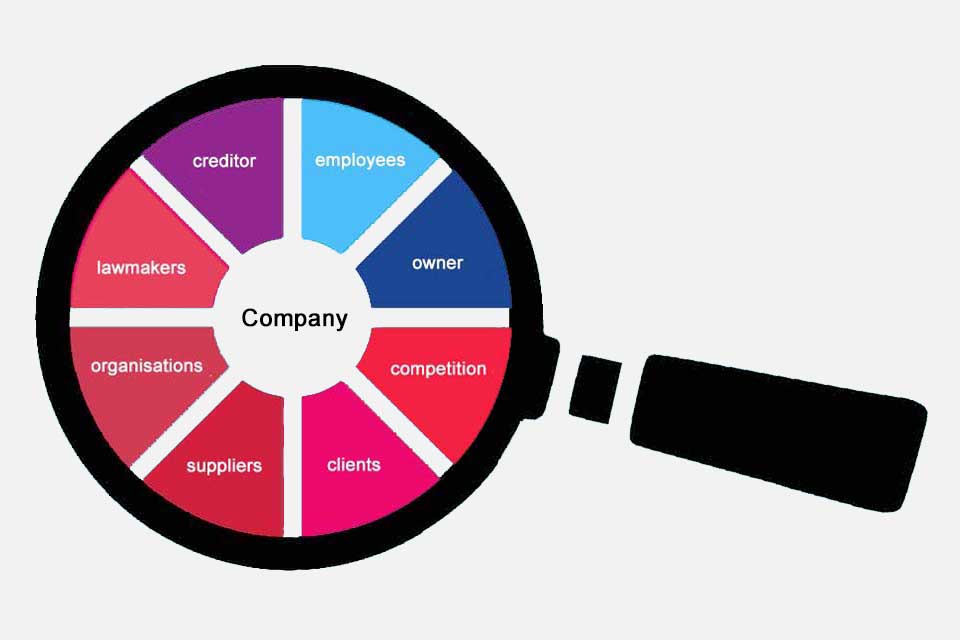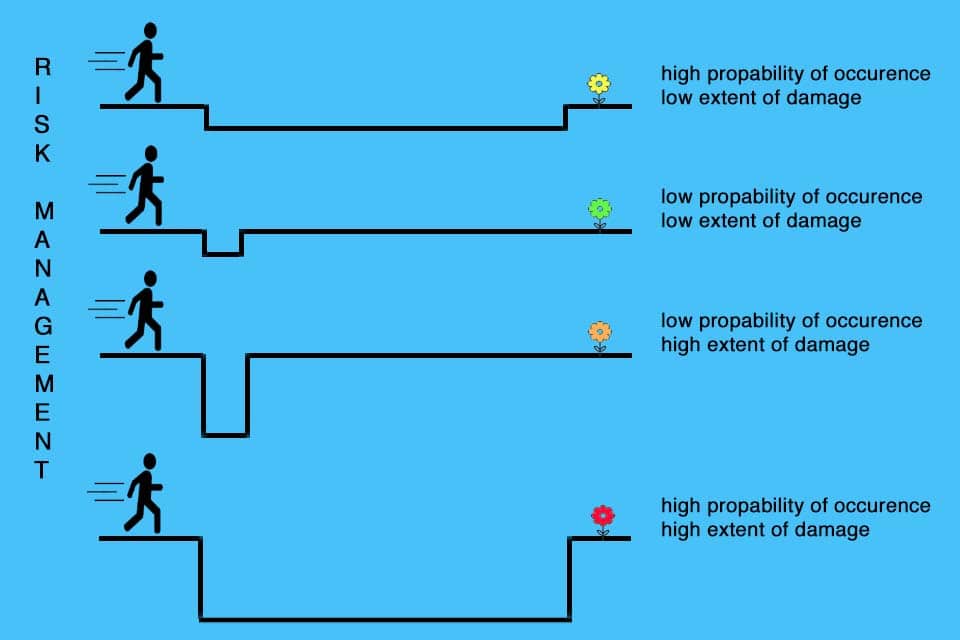What is a Win-Win Situation?
Table of Contents: Definition – Examples – Conditions and advantages – Questions from the field – Notes
Win-Win Situation: acting together, profiting from each other
Why do people make contracts? Why do organisations cooperate? And why do companies form consortia? Because people, organisations and companies expect benefits. In general terms, win-win refers to a situation in which all parties gain more benefit from an agreement reached than without an agreement.
The special thing about a win-win situation is that it is not just any contract of sale and not a declaration of intent. It is a cooperative approach and the conscious acceptance that all parties involved benefit from working together. In other words: For all parties, the individual benefit is greater than the individual cost. Each party benefits.
Examples of win-win situations
There are large and small examples of win-win situations. Here you can find some examples:
- Eco systems provide interfaces, companies develop apps or extensions for these platforms, users buy the apps – everybody wins.
- Bidding consortia bundle competences in order to participate in tenders together and, in case of success, to provide the required services. The client receives the required competencies in the defined scope and time frame, and only has to communicate with one central contact person, receives only one joint invoice instead of many individual invoices from the individual companies, etc. All parties win.
- A company has no budget for a required service, a freelancer has not enough references on his website. The freeclancer provides the service and receives a benevolent reference in exchange. For both parties the cooperation is beneficial.
- You have too little space in your basement and a bicycle you have not ridden for many years. The growing son of a friend needs a new bike. You give your bicycle to the father, who gives it to his son and from now on you have more space in the cellar.
You can probably easily imagine many more examples. But you might also be critical of the examples, because programming apps for eco-systems or working in a consortium creates dependencies. The freelancer provides his services free of charge, so he might be exploited. And the bike might have the wrong color and the son may not like it. This leads to three conclusions:
- The assessment of whether it’s a win-win situation must be made by those involved.
- The benefit can be greater for one party than for the other.
- Only if it really is a win-win situation is there a chance that the parties involved will continue to try to cooperate with each other and “do business” in the future.
Conditions and advantages of the win-win strategy
The term “win-win situation” goes back to a research project at Harvard University in the 1970s. In the course of the “Havard Negotiation Project”, negotiation methods were examined and optimised. [1] The result of the project was the so-called “win-win strategy” – also known as the Harvard concept or double win strategy. This concept focused on “proper negotiation” in which the parties involved in a negotiation situation each achieve a profit by reaching an agreement.
The following conditions apply to the win-win strategy:
- The parties are able to adopt the perspective of the other party.
- The parties not only have the individual advantage, but also a real advantage of the other party in mind.
- The parties know that it is not about winning and losing, but about winning and winning.
- The parties know that it is not about the position of the strongest and also not about maximising profits, but about the advantages of cooperation that both sides want to realise.
- The parties know that they are mutually responsible for the interests of the other party.
If they succeed in putting this double win strategy into practice, there are several advantages:
- The basis for a trustful cooperation has been laid.
- Opportunities for open and honest communication are given.
- There is the option for further, future cooperation.
One very practical advantage is often overlooked: by working together to benefit from each other, work becomes more pleasant and difficult situations can be avoided or at least eliminated. For this reason alone it is desirable to strive for a win-win situation.
Questions from the field
Here are some questions and answers from the field:
How realistic is a genuine win-win situation in negotiations between unequal partners?
In negotiations between unequal partners – for example, a large corporation and a small supplier – a win-win situation seems unrealistic at first glance. The stronger partner has more resources, market power and room to manoeuvre in negotiations. Nevertheless, a genuine win-win solution may be possible if strategic interests go beyond short-term advantages.
One example is the relationship between Apple and small app developers: Apple benefits massively from the app ecosystem while also giving small studios access to a global market. The developers receive visibility, monetisation opportunities and technical infrastructure, while Apple in turn strengthens the value of its platform through this diversity.
However, this relationship is by no means balanced in the sense of a ‘well-balanced’ partnership. The rules are set by Apple, fees are high, and rule violations can result in exclusion from the market. It is therefore not a win-win situation based on altruistic motives, but a strategically calculated cooperation with an asymmetrical distribution of power.
Real win-win situations are also possible between unequal partners, but they require clear arguments of benefit for both sides, professional management of expectations and often a conscious restraint on the part of the stronger partner. Without these elements, the solution threatens to slip into a one-sided win-lose dynamic, with the risk that trust and cooperation will suffer in the long term.
What role do power and trust play in win-win negotiations?
Power and trust are central coordinates of every negotiation, but they do not work linearly, but in a complex relationship of tension. While power describes the ability to assert one’s own interests, trust is based on the assumption that the other side will behave fairly and reliably, even without control. Both are effective, but not always in play at the same time.
In win-win negotiations, power is ideally not used as a means of exerting pressure, but as a means of creating space. The more powerful partner can actively create trust, for example through transparency, fair conditions or long-term commitments. This is not a sign of weakness, but of strategic foresight: trust reduces transaction costs, promotes innovation and increases the chance of sustainable partnerships.
Conversely, the need for trust is particularly evident where power relations are asymmetrical. Those who are weaker often rely more on trust, but also have more to lose. In such cases, a win-win situation becomes a real challenge: without credible ‘collateral’ (e.g. clear agreements, exit options or external arbitration boards), the willingness to be open remains low.
Trust is therefore not just a relational element, it is a resource that must be maintained and secured. The more complex or long-term a collaboration, the more important trust becomes as a basis for a genuine win-win logic.
Practical tip: When preparing for negotiations, it is worth thinking not only about interests and goals, but also about the existing (or lack of) trust and the perceived balance of power. Those who consciously address this, for example by sending out initial trust-building signals or by highlighting common dependencies, create the conditions for a sustainable, mutually beneficial outcome.
How do you measure a win-win situation?
At its core, a win-win situation is based on the mutual perception that one’s own efforts have paid off, without this necessarily meaning that one has received exactly the same amount in return. Particularly in asymmetrical constellations, the subjective sense of justice can be more decisive than objective distribution.
Nevertheless, certain clues can be identified to make a win-win situation more tangible:
- Have both sides achieved their core interests (not just positions!)?
- Were there concessions that created real added value for the other side?
- How sustainable are the results? (e.g. follow-up projects, stable business relationship)
- Were risks and opportunities fairly distributed?
Often, it takes time to see whether a win-win situation has actually been achieved. If, for example, both partners continue to speak positively of each other after the collaboration, initiate further joint projects or even resort to cooperative solutions when problems arise, this indicates real mutual benefit.
Of course, there are limits to measurability: not everything that counts can be counted. Trust, reputation, relationship quality or cultural fit are difficult to measure, but they are key success factors. In this respect, any evaluation of win-win outcomes is always a mixture of ‘hard facts’ and ‘soft assessments’.
Practical tip: a structured reflection, for example in the form of a joint lessons-learned workshop or a review, can help to secure insights, further develop trust and shape future collaborations in an even more targeted way. This alone does not create a measurable win-win, but it does make it clear how seriously both sides take the claim.
Are win-win situations culturally different?
The cultural imprint of win-win situations is an often-underestimated factor in international or intercultural negotiation contexts. Although the concept may sound universal at first glance, it is actually understood, evaluated and shaped very differently in different cultures.
In individualistic cultures (e.g. the US, Germany, the Netherlands), the focus is usually on maximising one’s own advantage. A win-win situation is often measured by whether both parties achieve a good result, as visibly and efficiently as possible.
In collectivist cultures (e.g. Japan, China, Indonesia), on the other hand, the relationship is at the forefront. Maintaining harmony in the long term, saving face and keeping the balance in coexistence are more important than a short-term deal. A win-win situation often arises here indirectly by avoiding conflicts, through symbolic gestures or by maintaining a good atmosphere.
The way win-win situations are negotiated and communicated also varies greatly. While in Western cultures, interests and options are often discussed openly, other cultures prefer more implicit communication. This can lead to offers or expectations being misinterpreted – and a supposed win-win situation meeting with mistrust or frustration.
Practical tip: Cultural bridge-builders can be helpful, such as moderators with intercultural experience, tandem teams or deliberate time slots for clarifying misunderstandings. After all, the will to cooperate alone is not enough; only mutual understanding makes it sustainable.
What happens if the parameters change after a win-win agreement has been reached?
Typical triggers for change include:
- economic developments (inflation, supply bottlenecks, exchange rates)
- a change in strategy on one side (e.g. a shift in focus, market exit)
- personnel changes (new points of contact, new values)
- technological changes (new alternatives, disruptions)
The result: the solution that was once seen as a win-win becomes fragile. Trust can crumble, expectations are disappointed, and the relationship runs the risk of turning into a win-lose or even lose-lose situation.
What can be done? Professional win-win negotiations always include a ‘what if?’ section. Clever agreements proactively create adjustment mechanisms, such as:
- flexibility clauses (e.g. price adjustment clauses, quantity adjustments)
- review points (joint evaluation after x months)
- Guidelines for dealing with changes (e.g. escalation paths, moderation formats)
- Exit scenarios that avoid loss of face
Practical tip: When negotiating, don’t just ask: ‘What is fair today?’ but also: ‘What would still be viable in six months’ time and how will we deal with each other then?’ The willingness to think together is often the real win.
Impulse to discuss:
A win-win situation for companies that are not yet cooperating with each other is difficult to agree upon. The proposal of one party to strive for this situation means an advantage for the other party in the negotiations.
Notes:
If you like the article or would like to discuss it, please feel free to share it in your network. And if you have any comments, please do not hesitate to send us a message.
[1] Harvard Negotiation Project
A no-win situation, also known as a lose-lose situation, is a situation in which a person has several options, but none of them leads to a net gain.
Here you will find a German-language video about win-win, win-lose and lose-lose.
Here you will find additional information from our Smartpedia section:



